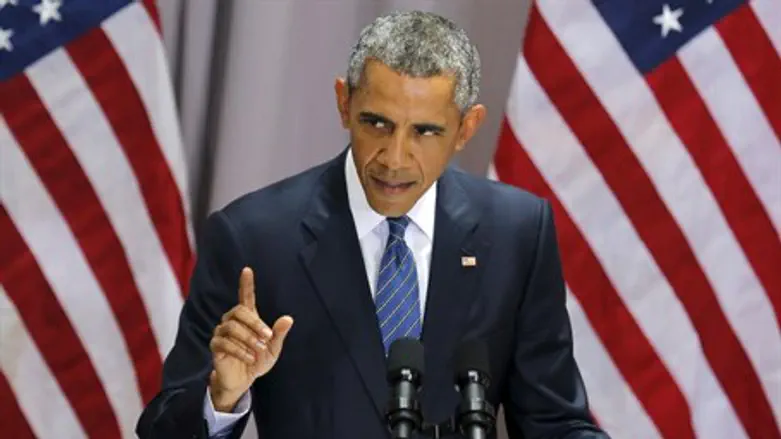
Two top Republican senators sent a letter to the US State Department on Wednesday, demanding the public release of letters sent by the Obama administration that allegedly promise foreign governments their companies won't be penalized for breaching sanctions on Iran.
The letter was written by Senators Mark Kirk (R-IL) and Marco Rubio (R-FL), and was revealed by the Washington Free Beacon.
In it the two note on apparent promises made to foreign governments, according to which their nations' companies won't be penalized for continuing to do business with Iran if sanctions "snap back" for Iranian violations of the deal. Iran has already menacingly said the "snap back" clause US President Barack Obama has so touted will not happen.
“The documents submitted by the Administration to Congress include non-public letters that you sent to the French, British, German, and Chinese governments on the consequences of sanctions snap-back,” Kirk and Rubio wrote to Secretary of State John Kerry.
Congress became aware of the promises during closed-door briefings with the Obama administration and via documents that were revealed as part of the 60-day Congressional review period.
The letter continues:
"These letters appear to reassure these foreign governments that their companies may not be impacted if sanctions are re-imposed in response to Iranian violations of the agreement. While Administration officials have claimed that this is not the case, we think it is important for the American public to be able to read your assurances to foreign governments for themselves as their elected representatives review this deal in the coming weeks.
"We therefore request the Administration to publicly release these letters, which are not classified, so that the full extent of the Administration’s non-public assurances to European and Chinese governments can be discussed openly by Congress and analyzed by impartial outside experts.
"Given the conflicting interpretations hinted at by the deal’s various stakeholders, it would also ease congressional review of the deal if you were to receive assurances from the other members of the P5+1 (world powers - ed.) about the guidance they will provide to companies about the inherent risks of investing in Iran due to Iran’s ongoing support for terrorism and use of its financial system for illicit activities and the potential for sanctions to snap back if Iran violates the nuclear agreement.
"The conditions under which foreign investment in Iran would proceed under the nuclear agreement remain unclear. On July 23, 2015, Secretary of the Treasury Jack Lew told the Senate Foreign Relations Committee that companies that have invested in Iran would 'not be able to continue doing things that are in violation of the sanctions' if sanctions snap back.
"Foreign investment in Iran will involve long-term contracts in many cases, however, and some interpretations of the Iran agreement indicate these contracts might be protected from the snap-back of sanctions by a so-called 'grandfather clause.'"
Iran is to receive hundreds of billions of dollars in sanctions relief in the deal, although Iran's continued GDP growth has indicated the sanctions regime wasn't strong enough.
Currently there is a push to block the deal in Congress, which will need a 2/3 majority to defeat Obama's veto. The deal has Iran inspect its own covert nuclear sites that have been used for nuclear detonator tests, and frees up its development and trade in ballistic missiles.
